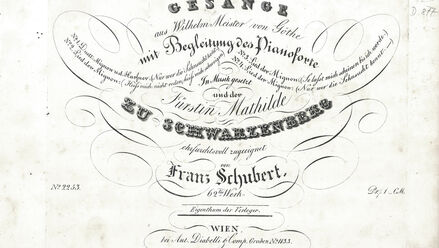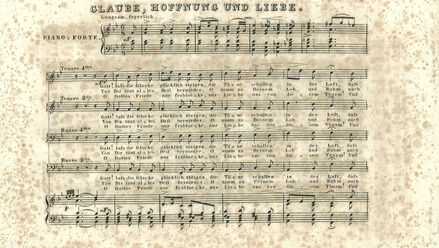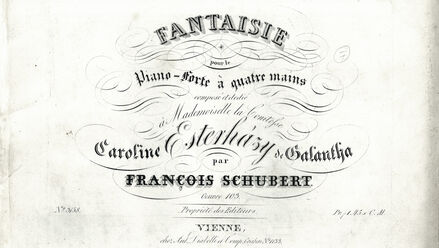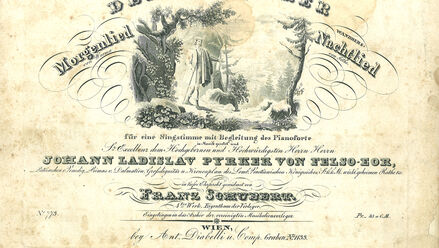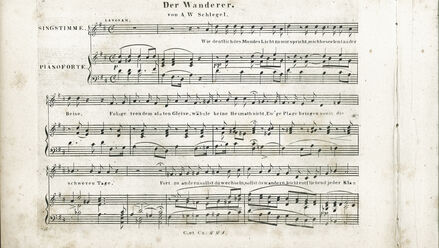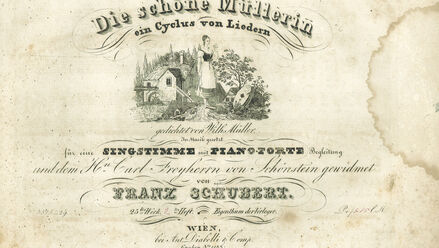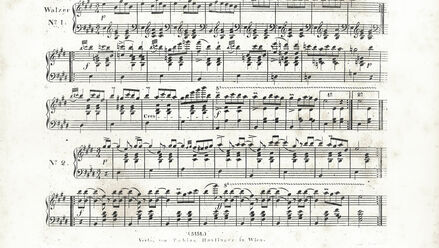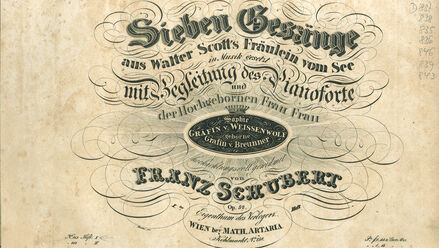Composition excercises by Franz Schubert
Catalogue of Schubert's works
* performed in the course of the Schubertiade once or several times
(a) partly performed in the course of the Schubertiade
– no performance in the course of the Schubertiade so far
– Quell' innocente figlio (Metastasio). 9 composition excercises for 1- 4 voices. 1812 (?) (D 17)
– Entra l'uomo allor che nasce (Metastasio). 6 composition excercises for 1- 4 voices. 1812 (D 33)
– Te solo adoro (Metastasio). Composition excercises for quartet (SATB). 1812 (D 34)
– Serbate, o Dei custodi (Metastasio). 3 composition excercises for different voices. 1812 (D 35)
– Dreifach ist der Schritt der Zeit (Schiller). Trio (TTB) . 1813 (D 43)
– Unendliche Freude (Schiller). Trio (TTB). 1813 (D 51)
– Vorüber die stöhnende Klage (Schiller). Trio (TTB). 1813 (D 53)
– Unendliche Freude (Schiller). Canon for three male voices. 1813 (D 54)
– Selig durch die Liebe (Schiller). Trio (TTB). 1813 (D 55)
* Sanctus. Canon for three voices. 1813 (D 56)
– Hier strecket der wallende Pilger (Schiller). Trio (TTB). 1813 (D 57)
– Dessen Fahne Donnerstürme wallte (Schiller). Trio (TTB). 1813 (D 58)
– Ein jugendlicher Maienschwung (Schiller). Canon for three voices. 1813 (D 61)
– Thronend auf erhabnem Sitz (Schiller). Trio (TTB). 1813 (D 62)
– Wer die steile Sternenbahn (Schiller). Trio (TTB). 1813 (D 63)
– Majestätsche Sonnenrosse (Schiller). Trio (TTB). 1813 (D 64)
* Frisch atmet des Morgens (Schiller). Trio (TTB). 1813 (D 67)
– Dreifach ist der Schritt der Zeit (Schiller). Canon for three voices. 1813 (D 69)
– Die zwei Tugendwege (Schiller). Trio (TTB). 1813 (D 71)
– Alleluja in F. Canon for three voices. 1813 (?) (D 71 A)
– Hier umarmen sich getreue Gatten (Schiller). Trio (TTB). 1813 (D 60)
»'Unter allen musikalischen Festivals der Welt ist die Schubertiade Hohenems vielleicht das reinste und annährend vollkommenste.' Der Satz Bernard Levins gilt noch heute.«
Südwestpresse, Germany
